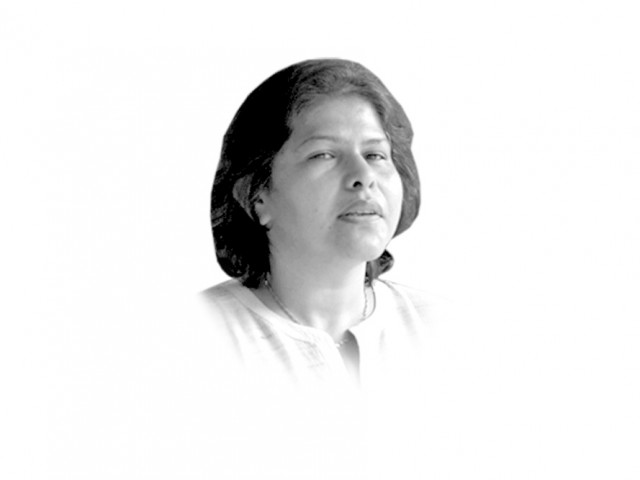Too many cooks!!
Bilawal’s speech had a robust aftertaste of many ingredients lying around the PPP kitchen for long

But some were excited. The liberal folk were relieved to hear someone finally talk about minority issues of all kinds. There are some who may now believe that the empty space between Nawaz Sharif and Imran Khan might get filled. Nevertheless, Aasia Bibi, Balochistan and being anti-Taliban are three fundamental steps, which will determine the direction this country will take. Moreover, these cases are symbolic of a larger malaise. More than an individual’s tale, Aasia Bibi’s story is about a state which no longer has the capacity to dispense justice because its vision is clouded by dogma. Her tragedy lies in the legal regime of the 1980s couched in redefinition of the state during the Zulfikar Ali Bhutto regime in 1974.
Similarly, Balochistan is a gaping hole pertaining to the frustration and unhappiness of a people regarding a contract of a federating unit they were a party to, but no longer feel that it is being honoured. Improving conditions call for a more serious engagement than running with the hare and hunting with the hounds. Will the unhappy Baloch find the former president’s apology sufficient to nurse his/her wounds, especially when when he/she also heard in the speech that the grandson would most likely follow the grandfather in allowing the state security apparatus to use brute force in Balochistan anytime it seemed to threaten the state? While some rejoiced, for others, the speech would have given them a sense of deja vu.
Eliminating the Taliban is equally tough, not only because Punjab is full of such characters and the provincial government’s leadership is accused of having ideological sympathies with the zealots, but also due to the fact that every other place is becoming like Punjab. Lahore may be responsible for a lot of ills, but it certainly cannot account for why the PPP government failed to check the proliferation of questionable madrassas under its watch in Sindh. Or how the interior ministry in the previous government built ties with the Lal Masjid/Hafsa madrassa crowd. Notwithstanding the nervousness of many Sindhi friends on the issue of changing social ethos of the province, the fact is that south Punjab had also transformed the same way. It is not about ordinary people popularly thinking like the Taliban, but the militants taking roots in a society because they find an enabling environment and infrastructure. What enables them are not the poor, but the powerful, who initially used jihadis mainly as temporary partners for their own power enhancement until they were left with no option but to surrender to them permanently. Sindh is undergoing a transformation just like south Punjab.
These are not the questions which the PPP jiyala probably wants to ask right away. The PPP stalwart is a peculiar being, who does not fit anywhere else. The party has been more than an ideology — it’s a way of life for the jiyala. When jiyalas are angry with the party leadership, they do not come out to vote. So, the joy on someone taking ownership must have been tremendous. But the speech carried a strange recipe: a potent potion of Sindhi nationalism based on tales of victimhood meant to keep the party alive in Sindh while its leadership struggles to bring a dying party back to life in Punjab. Oddly enough, considering that the first speech-maker at the October 18 event was Syed Muzaffar alias Tappi, then it appears that the PPP in Sindh and Punjab will emerge as two separate projects — one will be kept alive through an artificial respirator of Sindhi nationalism and political patronage oiled by money and pressure, the other by embracing all that may seem like an anti-thesis of Sindhi nationalism. Naturally, hidden between the lines is the fact that even Aunty Faryal has the establishment in Sindh eating out of her hands in Nawabshah, so that everyone can live happily ever after.
Referring to rekindling the PPP in Punjab, its biggest problem is the lack of leadership that can do the magic. It was the PPP Punjab leadership that had wrongly advised Benazir Bhutto to abandon Lahore in the 1990 elections, a seat she had won in 1988. The party never recovered that lost ground again and may not do so in the future as long as it is unclear about its ideological position in Punjab. The PPP Punjab may dislike Nawaz Sharif’s face, but not his Punjab politics. The leadership that the PPP and ‘Bhuttoism’ produced during the 1970s rose to its present position where they look no different from many PML-N leaders.
The party leadership will have to be artful in carving out a policy, which can somehow help benefit it despite the north/central versus south Punjab divide. The party’s southern leadership is too focused on personal tragedies and gains to exploit the party’s potential. Thus, the 2013 election was a failure, not just due to election rigging but also due to the inability to capture the people’s imagination.
One is tempted to note and write about the PPP because it had once captured the people’s imagination. It stoked a fire in the people’s belly, whose extinction ought to be documented, just as its rise was, because this says something about us as a people.
Published in The Express Tribune, October 23rd, 2014.
Like Opinion & Editorial on Facebook, follow @ETOpEd on Twitter to receive all updates on all our daily pieces.














COMMENTS
Comments are moderated and generally will be posted if they are on-topic and not abusive.
For more information, please see our Comments FAQ